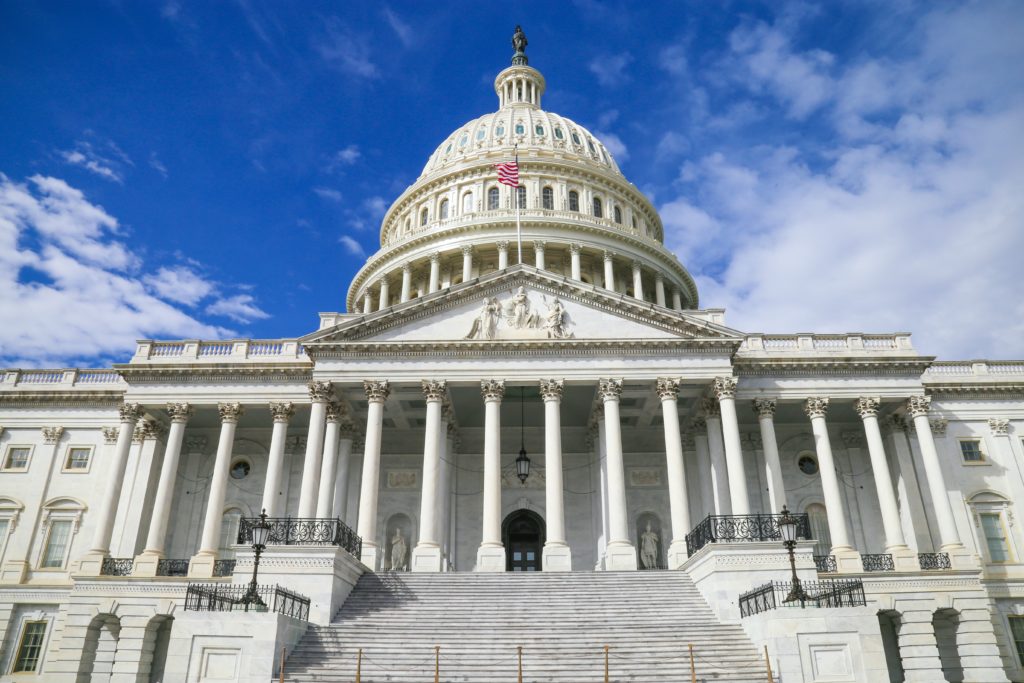Why the Corporate Transparency Act Is Really a ‘Mom and Pop Lock ‘Em Up’ Act
|
Getting your Trinity Audio player ready...
|
 Law enforcement does not have access to tax returns showing income and salaries or wealth. This was a policy decision following President Nixon’s administration. It was to avoid the risk that political enemies would access your tax history to use against you. Nevertheless, it is about to become fair game for law enforcement to see all assets you own if you have a controlling interest in a business. While an asset ownership registry has not traditionally been the American way, more troubling is to impose harsh penalties for non-compliance on virtually all small businesses, while offering exemptions for large and medium sized businesses.
Law enforcement does not have access to tax returns showing income and salaries or wealth. This was a policy decision following President Nixon’s administration. It was to avoid the risk that political enemies would access your tax history to use against you. Nevertheless, it is about to become fair game for law enforcement to see all assets you own if you have a controlling interest in a business. While an asset ownership registry has not traditionally been the American way, more troubling is to impose harsh penalties for non-compliance on virtually all small businesses, while offering exemptions for large and medium sized businesses.
Congress did just that in passing the 2020 National Defense Authorization Act, when it overrode Trump’s veto on January 1, 2021. This included provisions commonly known as the Corporate Transparency Act. It is the United States’ first law to require beneficial ownership disclosure requirements for LLCs and Corporations. Unfortunately, this special interest legislation by the banks disregards the best interests of small businesses, the economy, and the legal community. It ignores the practical side of what to do when companies fail. It turns millions of current and former business owners into potential criminals if they willingly do not file this new FinCEN Beneficial Ownership report at least annually.
Motivation behind this has little to do with tracking down criminals and everything to do with banks cutting corporate compliance costs. The collateral damage in this effort is every mom-and-pop business and our start-up economy. The Act purports both to target money laundering and assist law enforcement to reduce tax evasion. Of course, it does neither because criminals will either lie or not report who owns their businesses.
The Act has millions of mom-and-pop businesses in its cross hairs. Busy entrepreneurs, many of whom are savvy at operating businesses and well educated, are notoriously poor at keeping up with timely government filings. The Act exempts the disclosure of beneficial owners of any company with more than 20 employees and more than $5 million in assets. In contrast, small business owners face $10,000 fines and two years of jail time.
The Act also fails to account for millions of people connected to previously operating small businesses that have already gone out of business without formally dissolving. Depending on how the regulations are written, even these past business owners may need to file on the ownership registry. Most of them were nothing more than optimistic “wantrepreneurs” who set up a business that never did anything.
Forming a business is easy in the United States. Entrepreneurs often face more challenges when opening a bank account to run the business. In other words, in the United States, banks are the back-stops to root out criminals. Banks, under the Bank Secrecy Act and Know Your Customer laws, must research customers’ business entity documents to determine ownership.
The committee findings of the House Financial Services Committee in the 2019 version of this bill correctly noted that an entrepreneur in the United States “typically provides less information at the time of incorporation than is needed to obtain a bank account….” The committee failed to note that, in order to actually open a bank account, a company owner must obtain an IRS tax identification number, the application for which does require a social security number or international passport. Banks also must spend resources on due diligence to research and verify owners of small businesses. These are the costs and homework banks will now avoid by requiring small businesses to self-report on government regimes.
Philosophically, entrepreneurship is encouraged in the United States. States compete for entrepreneurial businesses by making it is easy to file a company with the state, yet more difficult to open a bank account. This encourages the start-up culture of innovation and higher rates of entrepreneurship. The concept being that a company without a bank account is just a piece of paper, or an idea. Therefore, make it easy to start a business, but more difficult to use it for illicit money transactions by regulating the banks. Banks hire whole departments and specialists to make sure they do not help bad guys who may launder money. Banks are better positioned to police ownership than a self-reporting system with no humans reviewing ownership documents.
The objective of this Act is to flip this American entrepreneur paradigm to the European entrepreneur model. It makes it easier to open a bank account and much more onerous to incorporate. Europe is not business friendly to small business owners. This Act allows banks to rely blindly on government beneficial ownership self-disclosure registries without the risk or responsibility of the banks performing due diligence of actually reviewing corporate documents. An unintended consequence of this Act is to make it easier for bad guys to skirt Know Your Customer laws without bank officers questioning business ownership directly. Instead, banks will just rely on self-reporting on these circular, unverified ownership registries.
To further prove that small businesses are the targets of banks, this Act exempts all but the smallest of businesses. This is a free pass to Wall Street businesses. It ensnares Main Street businesses who will have a much harder time shouldering the new compliance costs, because they are the most unlawyered businesses in the country.
Bad guys will lie and flout this law while exposing millions of honest but unaware small business owners to harsh penalties who innocently neglect to file timely. Banks in the United States are already required to report transactions they suspect are moving funds in violation of the law. This Act only shifts the burden of knowing ownership away from banks to save bankers the cost of due diligence under the Bank Secrecy Act. More significantly, this Act punishes millions of small business owners and chills the formation of new businesses, resulting in hampering small businesses, the main job growth engine for our economy and the avenue to prosperity, upward mobility, and innovation.
Another problem is giving law enforcement access to beneficial ownership registries without 4th amendment warrant protections. This makes it remarkably easy to create a “big brother” National Security Administration map showing who owns every business entity in the entire country and across much of the world. The problem is this could chill investment. For example, the Attorney General could investigate the owners and managers of political rivals and companies who support political adversaries. Not enough prevents this information from being used for political ends or illicit motives. Only a token request to the Court is needed to obtain this information, not a warrant supported by probable cause.
Providing beneficial ownership information registration could risk a data breach to foreign actors, like Russia, exposing millions of beneficial owners to the risk of fraud, kidnapping, blackmail, violence or intimidation, or some situations where the beneficial owner is a minor or otherwise incapable.
Before finalizing regulations on beneficial owners, mom and pop businesses and small-town economies should be considered to make sure they are not put in jail or fined out of business. Imposing criminal penalties on hard working honest business owners will frighten entrepreneurs from starting businesses at best and fill our jails with honest enterprising neighbors at worst.




